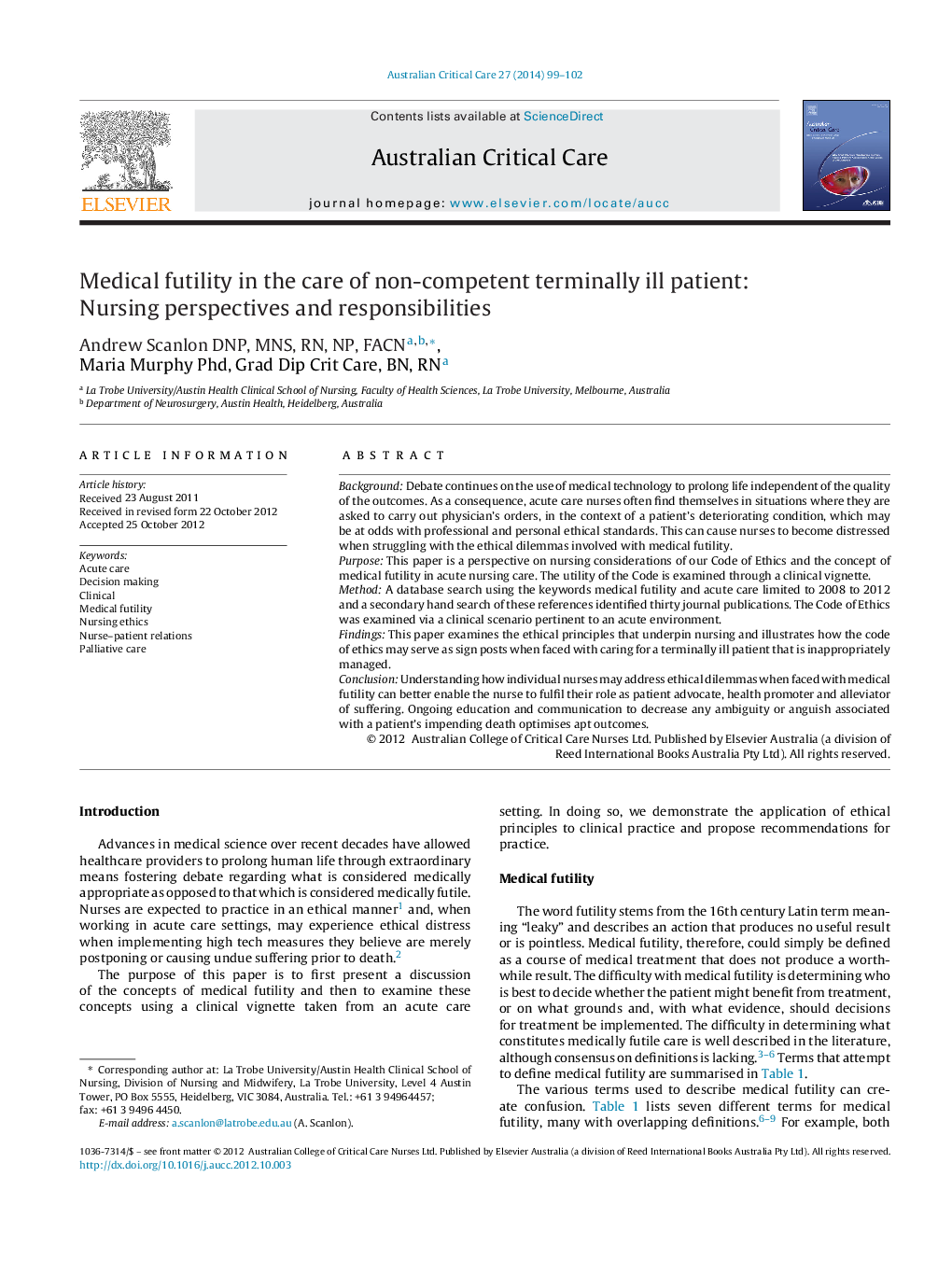| Article ID | Journal | Published Year | Pages | File Type |
|---|---|---|---|---|
| 2607268 | Australian Critical Care | 2014 | 4 Pages |
BackgroundDebate continues on the use of medical technology to prolong life independent of the quality of the outcomes. As a consequence, acute care nurses often find themselves in situations where they are asked to carry out physician's orders, in the context of a patient's deteriorating condition, which may be at odds with professional and personal ethical standards. This can cause nurses to become distressed when struggling with the ethical dilemmas involved with medical futility.PurposeThis paper is a perspective on nursing considerations of our Code of Ethics and the concept of medical futility in acute nursing care. The utility of the Code is examined through a clinical vignette.MethodA database search using the keywords medical futility and acute care limited to 2008 to 2012 and a secondary hand search of these references identified thirty journal publications. The Code of Ethics was examined via a clinical scenario pertinent to an acute environment.FindingsThis paper examines the ethical principles that underpin nursing and illustrates how the code of ethics may serve as sign posts when faced with caring for a terminally ill patient that is inappropriately managed.ConclusionUnderstanding how individual nurses may address ethical dilemmas when faced with medical futility can better enable the nurse to fulfil their role as patient advocate, health promoter and alleviator of suffering. Ongoing education and communication to decrease any ambiguity or anguish associated with a patient's impending death optimises apt outcomes.
